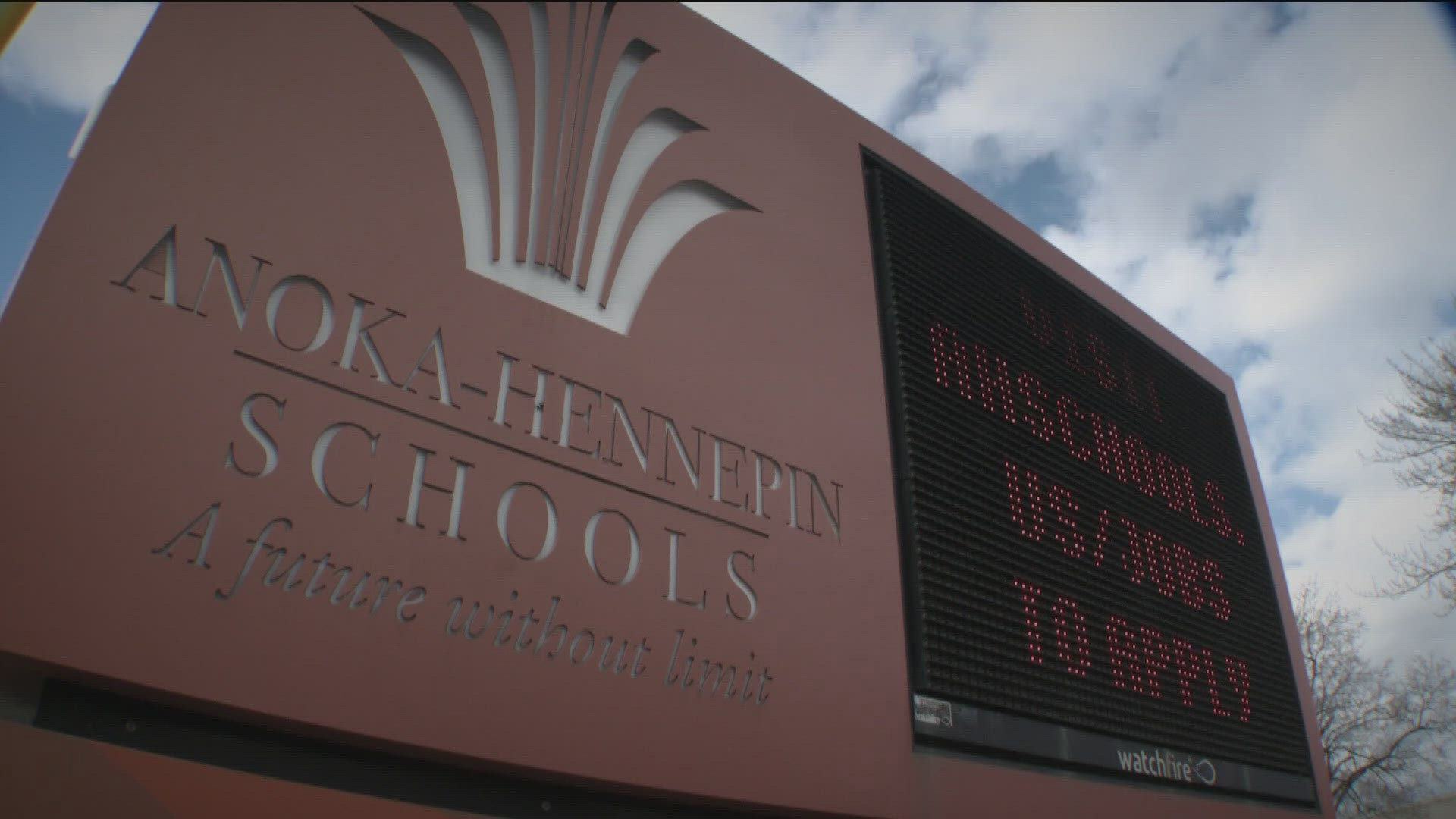ANOKA, Minn. — The state's largest school district is moving ahead with severe cuts to try and continue tackling a $26 million shortfall.
The Anoka-Hennepin school board already approved $5 million in cuts at the central office, totaling some 40 jobs. At Monday night's meeting, its members agreed on $9 million more from the same location, which is another 202 jobs.
Longtime employees tell KARE 11 off-camera that these are the deepest cuts they've ever seen and include a complete overhaul of the district's leadership.
"That's a significant cut for the biggest school district in the state and the reality is every district is facing pretty challenging budget decisions like this," said EdAllies Policy Director Matt Shaver. The advocacy group creates state policies to try and help close student achievement gaps.
Shaver said the gaps will only grow as cuts continue, even if they're made at the administration level.
"We're in a situation that nobody is excited about and so to do the least harm, on some level, it makes some sense to look at non-student facing roles, but you have to understand the trade-offs down the road are making it more challenging," said Shaver.
The most noticeable change essentially slashes Superintendent Cory McIntyre's cabinet in half. Six positions will be cut and the five remaining will include his general counsel, human resources, chief financial officer, chief operations officer and a new deputy supervisor.
The board's decision may prevent cutting any programs and teachers for the next year, but there's concern that they'll have little support left.
"Those are a lot of folks who doing some of the medium and long-term strategic planning and implementation work that is so important," said Shaver. "You don't want to put the work of all that on the backs of teachers who are just trying to do their job."
Other central office cuts include learning specialists and volunteer service coordinators who are part of community education.
The board will then have to negotiate further cuts for the following school year that they hope will be offset by new, potential state funding, but even that isn't a guarantee.
"Kids deserve more than that; they deserve better than that," said Shaver.

